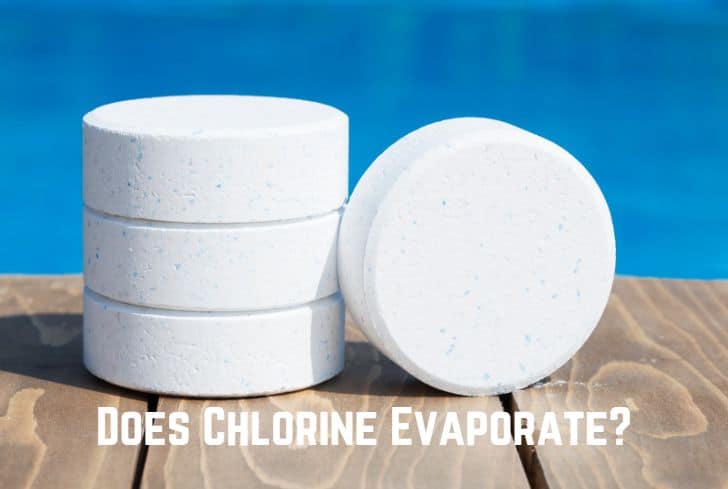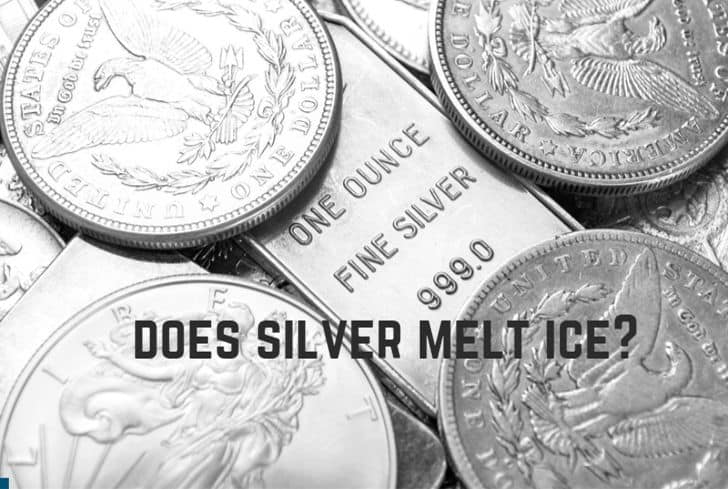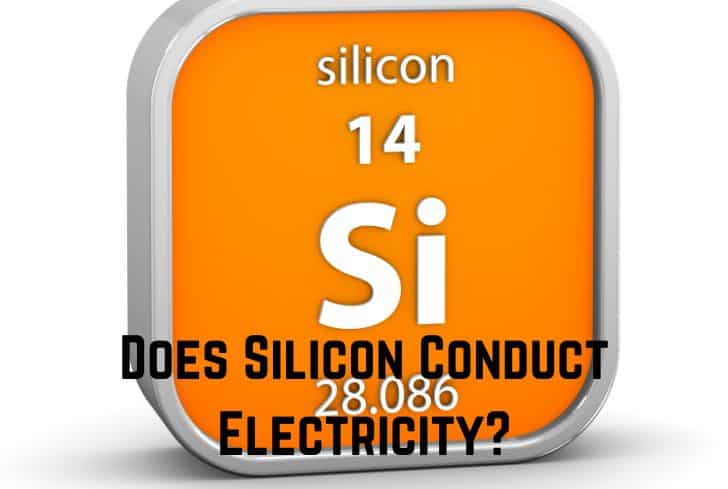Is Water Magnetic? (It’s Non-magnetic)
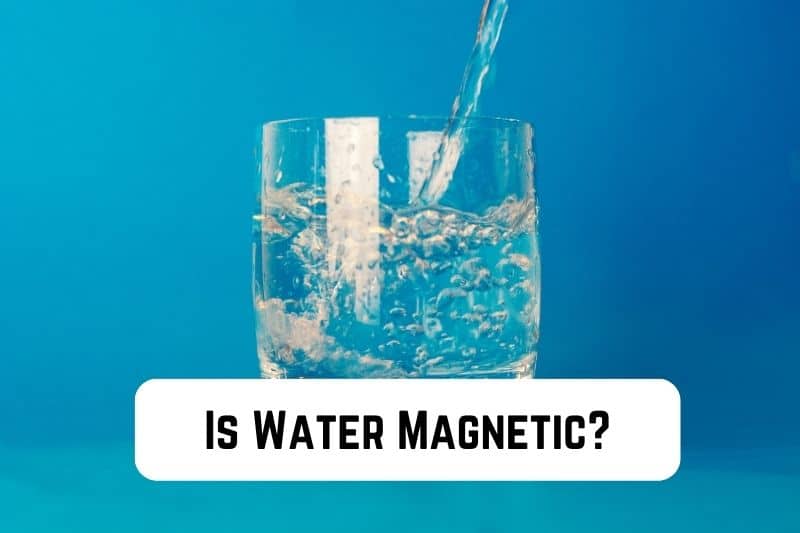
Have you ever dropped your keys in a muddy water puddle? It would be fantastic to retrieve them without having to search with your hands. Strong retrieving magnets can attract your keys from the muddy water pool. Then again, is water magnetic?
In this article, we’ll go into more detail about the answer to that interesting topic. In addition, we’ll talk about the magnetism of several kinds of water, including heavy, distilled, tap, and pure water. Continue reading to learn if water is a compound, a pure substance, or if it can be magnetized.
Read: Is Pyrite Magnetic? (No. It Isn’t)
Is Water Magnetic or Non-magnetic?
Water is not magnetic. Its atomic structure only contains paired electrons. For magnetism to occur, two pairs of electrons must spin in the same direction. When a powerful magnet is brought close to water, the molecules produce magnetic fields that make the water repel the magnet. Diamagnetic substances are those that have all of their electrons paired and repel a magnetic field.
Diamagnetic materials experience a repelling force because the applied magnetic field induces an opposing magnetic field. Diamagnetic materials such as water and water-based materials have a relative magnetic permeability that is less than or equal to 1.
Water has a magnetic susceptibility (the degree a material can be magnetized in response to an applied magnetic field) less than or equal to zero. It reveals whether a magnetic field attracts a substance toward or pushes it away. The ability of a material to create an internal magnetic field within itself when a magnetic field is applied is known as magnetic permeability.
Is Pure Water Magnetic?
Pure water is non-magnetic. It has diamagnetic properties. Diamagnetic materials are not attracted to magnets or pulled into them by external magnetic fields. Since they are all coupled, their electrons spin in various directions. Due to their opposing spins, the electron’s magnetic field cancels out one another. Hence, the lack of a net magnetic field.
Many individuals mistake pure water for distilled water. We first define the differences because we will also answer whether distilled water is magnetic. The primary distinction between the two is the method used to purify the water.
The differences between pure and distilled water are shown in the table below.
| Pure water | Distilled water |
| -Water undergoes purification using reverse osmosis, ion exchange, UV light, and sand filtration. | -A product of the distillation process. |
| -It is completely free of contaminants or has very low quantities. | -Water is boiled to get rid of impurities. |
| -Salts and other mineral ions are taken out of water through deionization. | -Steam from the water is then collected and cooled. |
| -Reverse osmosis filters the water through a semipermeable membrane that removes salts and other chemicals. | -There are hardly any pollutants and no germs in distilled water. |
| -Pure water retains natural minerals after purification. | -Distillation does not always remove all harmful substances; thus, extra purification procedures are advised. |
| -Water can be made pure by using ultraviolet light to eliminate harmful viruses and bacteria. | -The distilled water lacks naturally occurring minerals like calcium and magnesium. |
Is Distilled Water Magnetic?
Distilled water is non-magnetic. The atomic structure of water does not contain any unpaired electrons. Distilled water lacks magnetic properties because the paired electrons are pointed in opposing directions. As they spin, all electrons generate a magnetic field. The net magnetic moment of the atom is zero when two electrons link up and spin and orbit in opposite directions.
The direction of a material’s electrons’ spin and orbit determines whether it is magnetic. The magnetic fields created by the motion of the electrons sum up to zero when they are moving in the opposite direction. The overall magnetic field of an atom is, therefore, zero when all its electrons are in pairs.
Is Tap Water Magnetic?
The water from the tap is not magnetic. There are no unpaired electrons because it has 10 electrons that are grouped into 5 pairs. The only magnetic reaction that happens when a strong magnet is introduced to tap water is repulsion. You can only use a magnetometer to measure the strength of a magnetic field in tap water.
Lakes, rivers, reservoirs, and groundwater supply most homes with water. Pumps are used to direct the water to a treatment facility. After that, it is cleaned and treated before being sent to your tap or faucets through different water pipes.
Is Heavy Water Magnetic?
Heavy water is not magnetic. It is also known as deuterium oxide (²H2O or D2O) and has heavier hydrogen (deuterium) atoms than regular water. Each molecule of heavy water contains one oxygen and two heavier hydrogen atoms. Heavy water is diamagnetic because its atoms lack nuclear spin. That implies a strong magnet will move away from heavy water when placed nearby.
It’s a common misconception that hard and heavy water are the same. However, this needs to be corrected. Calcium and magnesium are the key minerals in hard water. Heavy water has slightly different physical and chemical properties than regular water. However, heavy water has a variety of functions, as highlighted below.
- Nuclear magnetic resonance spectroscopy (NMR) makes use of heavy water.
- It serves as a tracer for research on how respiration and photosynthesis work.
- Infrared spectroscopy frequently uses heavy water as opposed to regular water.
- The metabolic rate of both people and animals can be measured using heavy water, a solution made of deuterium, and heavy-oxygen water.
- In the nuclear reactor, it serves as a moderator to slow down quickly traveling neutrons.
Pure heavy water has no radioactivity and poses no risk to people when consumed in moderation. Heavy water only poses a threat when consumed over an extended period of time. Some of its symptoms include low blood pressure and dizziness.
Is Water a Pure Substance?
Water is a pure substance. The chemical composition of a pure substance is constant. Two hydrogen atoms in water combine chemically with one oxygen atom to create a water molecule. Pure water has distinct qualities that set it apart from oxygen and hydrogen. Water is not a mixture since the two atoms (hydrogen and oxygen) do not physically combine.
Water is pure because it only consists of one molecule or compound (H2O), unlike a mixture comprising various molecules or elements. Elements or compounds are classified as pure substances. One type of particle with a definite or consistent structure makes up pure substances. Each water molecule will be the same, no matter how thoroughly you examine it. Salt, baking powder, crystals, and water are all pure substances.
Properties of pure substances
Pure substances have the following properties:
- They have fixed melting and boiling points.
- These compounds mainly consist of one kind of atom or molecule, making them homogeneous.
- A pure substance participating in a chemical process always produces predictable byproducts.
- The majority of the chemicals have a steady and uniform composition throughout.
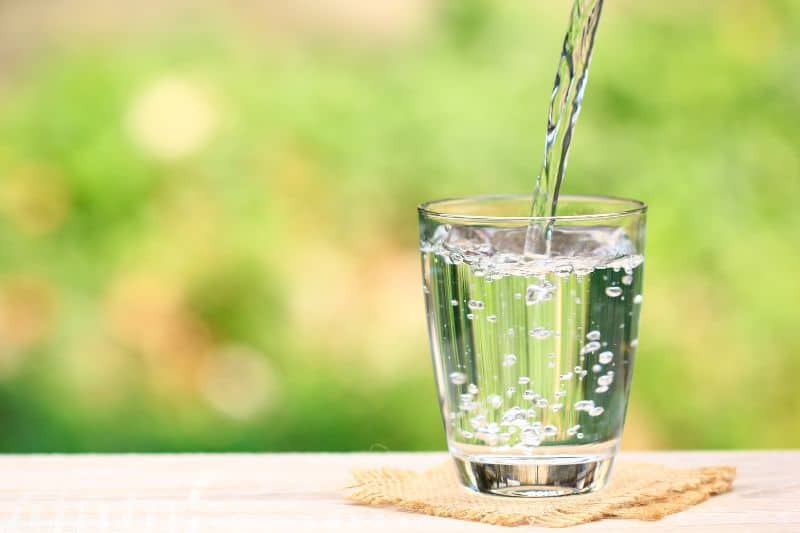
Is Water a Compound?
Water is a compound comprising one type of molecule, the water molecule. A water molecule is then made up of oxygen(1) and hydrogen(2) atoms. Water atoms don’t exist. The two atoms that make up water(oxygen and hydrogen) are chemically combined in a fixed ratio. Because water consists of two types of atoms, it is then classified as a compound.
It’s interesting to note that water can be divided into two distinct elements when you use chemical processes. There are two hydrogens and one oxygen atom in every water molecule. One of the reasons why water is not an element. A substance made up entirely of one kind of atom is said to be an element.
Even with physical or chemical processes, elements cannot be broken down or transformed into new materials. The majority of them are made of metals, non-metals, and metalloids.
Can Water Be Magnetized?
Yes, it’s possible to magnetize water. You can make water magnetized by putting it through specially made permanent magnets. The magnets ionize and activate the water to alter the structure. The magnetized water’s molecules take the shape of a hexagon. By passing hard water through magnetic fields to form soft water, water magnetization lessens the consequences of hard water.
Water that has been magnetized has the chemical formula H3O2 (3 hydrogen atoms bonded to 2 oxygen atoms). The water has a higher vibrational energy than regular water and is electrically charged.
Magnetizing water has several effects, as highlighted below:
- Depending on the type of water, adding a strong magnetic field causes the pH to rise, making the water more alkaline.
- The hexagonal structure of magnetized water, comparable to structured water in its hexagonal form, allows the water to be readily absorbed by the body’s cells. On the other hand, standard water takes more energy for the body to absorb because of its irregular shape.
- Minerals are reduced to smaller particles by the magnetic field, which makes them bioavailable to plant cells. You will require less water to cultivate plants as a result.
- Your body can effectively remove toxins from your system if you drink magnetized water. The water also helps with illnesses like digestion issues, plaque and gingivitis reduction, and pain and inflammation alleviation.
Read: Is a Penny Magnetic? (Answered)
Conclusion
Tap water is diamagnetic, as is regular, pure, distilled, and heavy. The different types of water have paired electrons that spin in opposite directions, eliminating magnetic fields. All these types of water repel magnets.
Pure water is both a pure substance and a compound. It is a compound rather than an element since it contains two elements that combine chemically. You can produce magnetized water by positioning strong magnets in the path of regular water.


